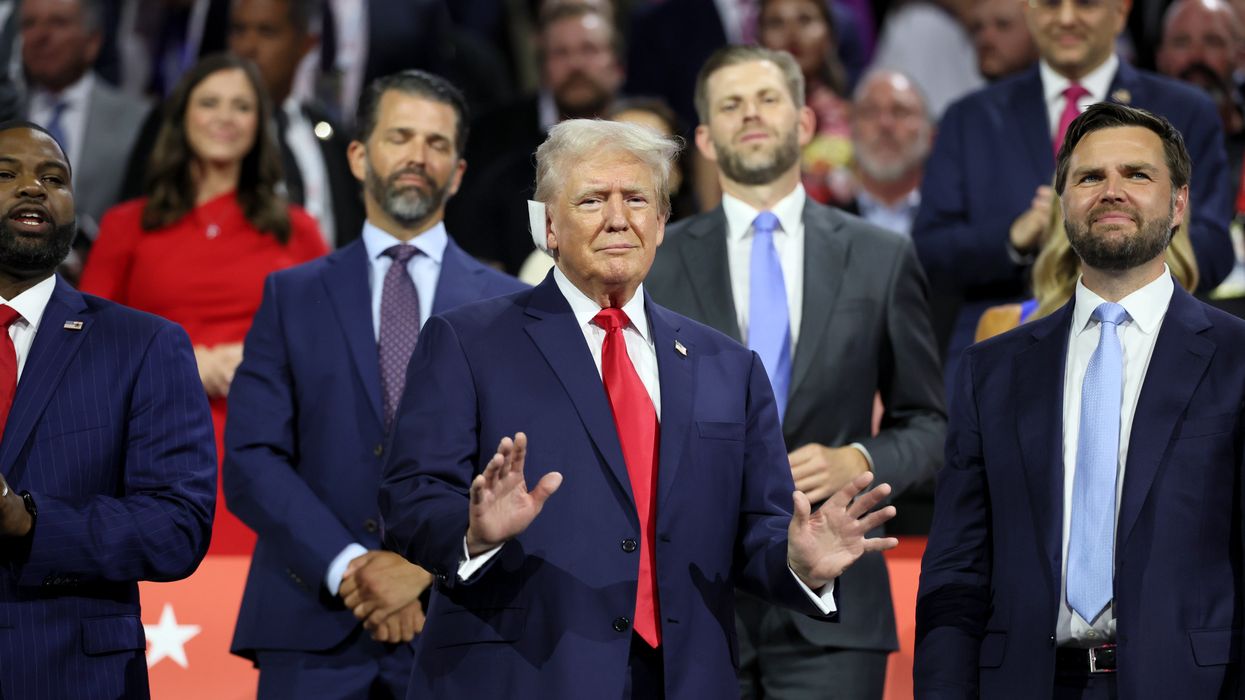Nye is the president and CEO of the Center for the Study of the Presidency and Congress and a former member of Congress from Virginia.
In the wake of an assassination attempt on an American presidential candidate, we are right to take a moment to reflect on the current trajectory of our politics, as we reject violence as an acceptable path and look for ways to cool the kinds of political rhetoric that might radicalize Americans to the point of normalizing brute force in our politics.
Even though the motivations of the July 13 shooter are yet unclear, it’s worth taking a moment to try to reset ourselves and make an earnest effort to listen to our better angels. However, unless we change the way we reward politicians in our electoral system, it is very likely that the opportunity of this moment to calm our politics will be lost, like many others before it.
We have a fundamental problem in our politics that negates efforts to encourage politicians to take a better road, or the media to play a healthier role. As long as our electoral system incentivizes politicians to engage in incendiary rhetoric and push the bounds of civility, and rewards this behavior with election or re-election, all our best efforts to appeal to logic and good sense are limited to marginal potential effect. As long as media outlets have a business model that rewards focus on dramatic storylines and bombastic political behavior, then that is where their focus will remain. And as long as we leave the responsibility for voter turnout to the campaigns instead of our society as a whole, we will continue to have an incentive for campaigns to engage in manipulative rule-crafting and radical appeals to emotion, because those are the proven ways to determine who shows up at election time.
The silver lining is that we have a pathway to changing the incentive built into the electoral system itself. Ideas for such reform are covered almost daily in this outlet, and momentum is building across the states. There are election innovations on the ballot this November in Nevada, Oregon and South Dakota, with others pending, that would change the incentive structure for candidates, compelling them to appeal to a much broader set of voters so they can make the majority requirement to win office. Unfortunately, there are also efforts on ballots, for example in Alaska, to undo or preclude such election innovations from continuing.
If we truly want to change political rhetoric past this moment, maintaining focus on these reforms is vital. It won’t fix all that is wrong with the course of our politics or heal all the divisions, but it would place a fundamentally different set of incentives in place that are shown to actually work. Without mandating voting, as Australia does for example, the problem of campaign responsibility for turnout will remain, but some of the ill effect could be moderated if candidates have to appeal to a majority to win, rather than a hard-core plurality.
Current attention is naturally on former President Donald Trump, who, in the aftermath of surviving a brutal assassination attempt that sadly took the life of a bystander, spoke of unity and who reportedly intended to amend his approach during the convention to strike a more civil tone. Having been one of the chief practitioners of incendiary rhetoric, the idea that he might seek to lower the political temperature is certainly welcome. If for example, he chose to reflect on the Jan. 6, 2021, riot and define that as the kind of violent behavior we should avoid in our politics, and call on his own followers to put aside incendiary descriptions of political adversaries in the best interests of the country, he might have some immediate positive effect on the coarse nature of political dialogue in America.
We would still have to wonder, though, how long we could rely on the good will of politicians whose electoral prospects are raised by appealing to the emotions of that small and extreme element of our politics that dominate primary election contests, or improved by the ability to fire up low propensity voters with existential and apocalyptic warnings about the intentions of their political foes. As long as those behaviors win elections, the incentive to engage in them will remain overwhelming.
Fortunately, we have answers to some of the structural questions. But if we allow ourselves to believe that simply calling on political leaders to do better or be more civil will put us on a better path, we will fail.




















Marco Rubio is the only adult left in the room